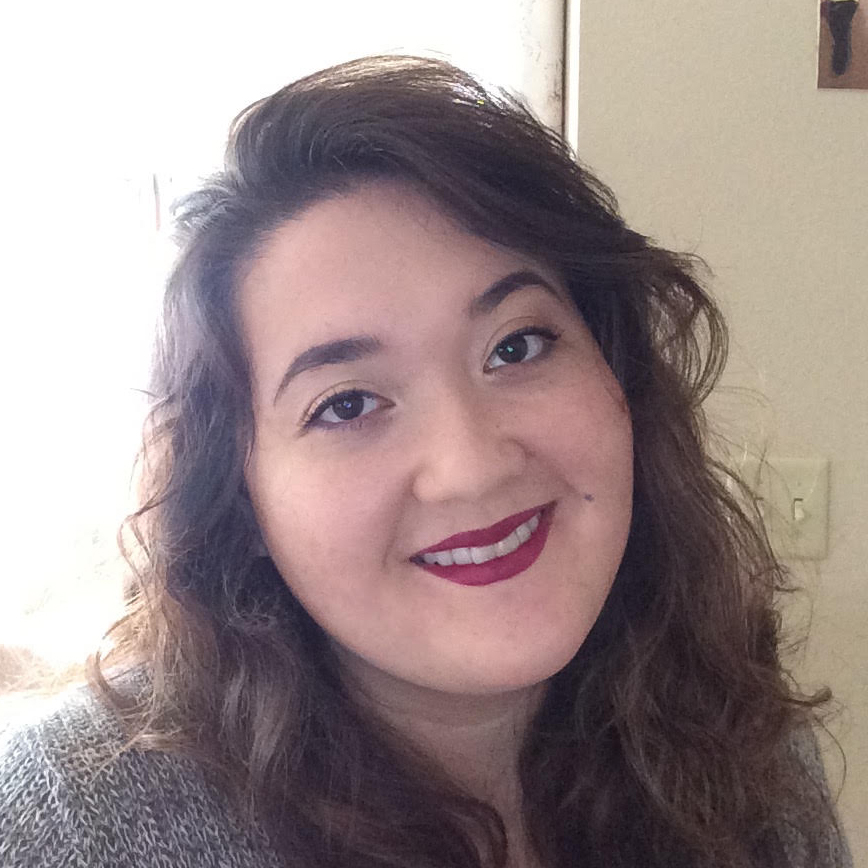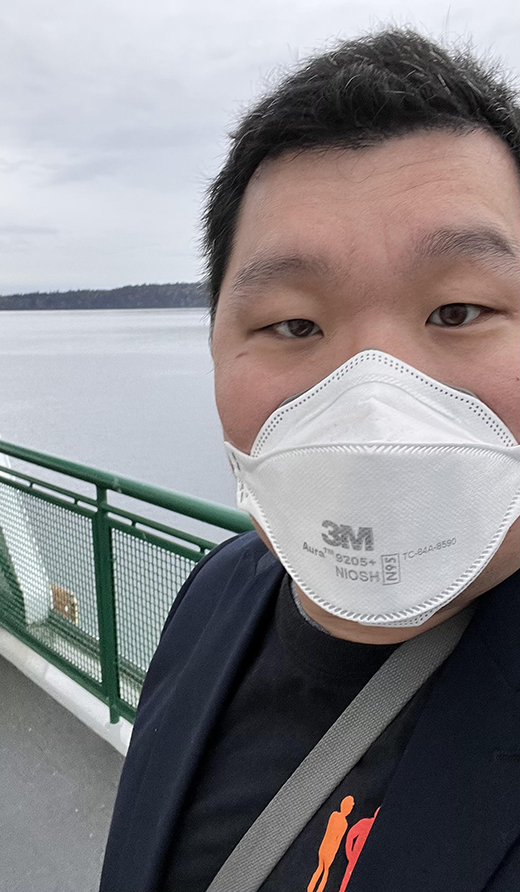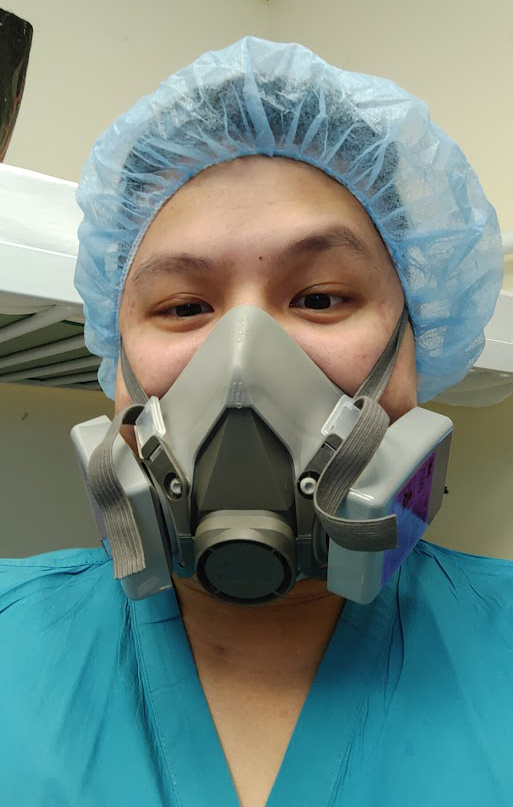By Kai Curry
NORTHWEST ASIAN WEEKLY
We recently asked “Novids”—people who have never had COVID—how they have kept the virus at bay.
“I would say the main thing that has helped me is the continuation of wearing my mask, being up to date on all of the boosters, making it a point to wash my hands every time I come home, and if possible, washing them in public after touching things at the grocery store, etc.,” said Eric P. (surname redacted by request), who grew up in the United States but whose parents are from Hong Kong.
Masking, boosting, washing hands.
These are integral steps to the regimen against COVID-19, and many have ceased all three in recent months as the COVID scare has faded. There’s no doubt that these are healthy practices in any situation—but are there extra things we can do that might be based upon Asian practices?
The Weekly spoke to locally-based Asians and Novids who all cited basic healthy (and previously mandated) routines as helping them stay COVID-free. When they looked deeper, though, they universally found they did take extra measures, and many of those measures were culturally derived.
“In Chinese traditional medicine, we believe the body and the food we consume can be hot or cold and that it’s important to maintain a balance between the two,” Fei Tan, who grew up in southern China, near Guangdong, told the Weekly. “If I am feeling too ‘hot,’ like a sore throat, then I will consume something to counter that.” Fei regularly seeks out non-Western methods. “What I think has been working the best to support that balance and my immune system has been chrysanthemum tea.” But has that stopped COVID-19? Like the others we spoke to, Fei strives to stay home, reduce contact with non-family and non-friends, is fully vaccinated, and still masks.
“Most of my practices are from my upbringing in an Asian household,” Eric went on. “My parents taught me to be clean, such as no shoes, change out of outside clothes, wash hands, etc. The epidemic just put a lot of those practices into overdrive.”
Eric has a deep sense of obligation to the safety of his loved ones—something that was a sticking point during the pandemic as the public was reminded that masking was not just for them but for others.
“I don’t want my fiancé to get sick from me or bring it to my family members and family friends.” This required Eric to change his habits since the pandemic, and he is not resentful.
“Growing up, everything was communal—big dinners with family and friends, vacations together, all the kids played together. So the idea of wearing a mask, getting vaccinated, being safe, was not an issue of ‘my rights being infringed,’ but rather, I’m doing these things to help my family, friends, and community around me because I care for them and they are an integral part of my life.”

Lisa Soranaka says quite a lot of her health habits have a Japanese influence. (Photo courtesy: Lisa Soranaka)
“I’m not sure if I have done anything special,” Lisa Soranaka said. “I have been vaccinated and had two additional boosters. I wash my hands frequently, I wore a mask longer than the mandates required, and will still put on a mask if I don’t feel well or if I am in a space that makes me uncomfortable. I don’t spend a lot of time in very crowded spaces. I do take elderberry syrup most days. And I have a fair amount of sinus issues so I use a Neti pot and humidifier often, and probably all those things were at least a little influenced by my heritage. My father is from Japan so there are quite a lot of habits my whole family has that have a Japanese influence.”

James Lee grew up in a Korean household with a father who practiced traditional Korean medicine. (Photo courtesy: James Lee)
James Lee added, “I definitely think being raised with immigrant parents who cared a lot about hygiene played a factor in my not catching COVID so far over the last three years…As a Korean household, we always left shoes at the door, but in addition to that, my mother would always wipe down floors by hand whenever possible, and she would also wash or sanitize any container or package that came into the house, such as when we would bring back groceries.”
All of our interviewees already practiced advanced hygienic measures before the pandemic ever happened. James’ dad had a clinic where he practiced the Korean version of traditional Chinese medicine.
“He was also pretty strict about hygiene and when I was a kid, he would make me soap and rinse my hands twice or even three times, probably because kids tend to not do a thorough job of washing themselves when they’re very young.” These habits stayed with James as an adult.

Dustin Lee was in the trenches helping those with COVID-19 during the height of the pandemic. (Photo courtesy: Dustin Lee)
In extraordinary circumstances, the daily rituals put into place can be integral to maintaining health. Our Novid interviewees weren’t just those who were able to avoid crowds. They also included people like Dustin Lee, a fourth year medical student when the pandemic started, and in New York, one of the hubs of the worst accumulation of cases. Dustin was in the trenches in the fight against COVID-19, both in New York and in Seattle, where he moved in 2021 to start his resident training in internal medicine.
“Throughout all of this, I have been in frequent contact with COVID patients,” he said. “At the beginning, when masks and N95s were not readily available, I would wear two medical masks. This was my own idea, not any scientific studies. I just figured if I can’t find an N95 mask, wouldn’t two masks be better protection?”
Like the others we spoke to, Dustin still wears a mask outside of work.
“My family is from Hong Kong so the idea of masking up was not a foreign concept. Hong Kong had to deal with SARS back in the early 2000s, so the idea of masking when one is sick was normal for me. So even today, when 90% of people outside are unmasked, I still feel comfortable wearing a mask…Even going to an outdoor event like a Mariners game, I’ll wear my mask.”
Dustin masks around people with greater vulnerability to COVID-19.
“I do what I can to prevent my elderly grandmothers from getting sick. From my experience, if they were to get COVID, I know they would likely be too fragile to recover from it.”
We also got some light-hearted answers. Daniel Young, who is half-Korean and grew up in Hawai’i, jokingly attributed his resistance to COVID to his “previous diet of Big Macs, Spam, Kalua pork, and Coke Zero.” Hard to believe, keeping COVID-19 at bay could just be luck, but Lisa told us, smiling, “I do keep lots of omamori [amulets] around too, so maybe that helps.”
Kai can be reached at info@nwasianweekly.com.
Made possible in part by the Washington State Department of Health through a grant from the Centers for Disease Control and Prevention. This information does not necessarily reflect the official policies of the Washington State Department of Health or the Department of Health and Human Services.




How about people who take Vit D, zinc, elderberry, use nose sprays with salt spray, echinacea and herbs and other Chinese herbal supplements to keep away Covid? Keep healthy with diet and exercise too!